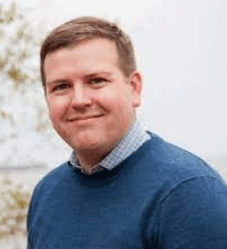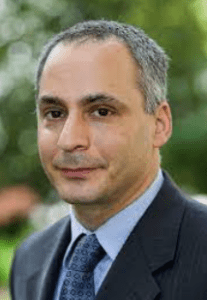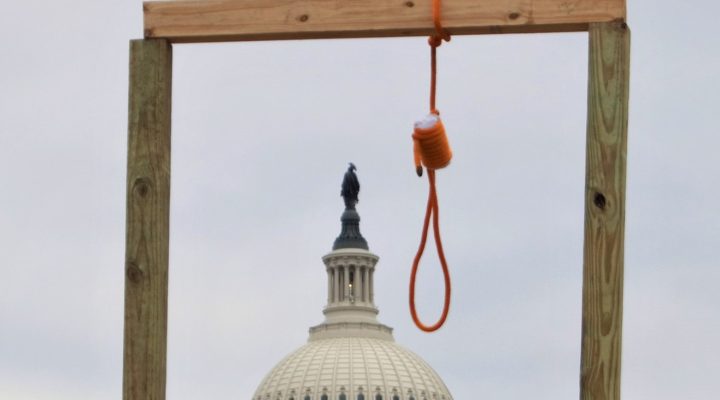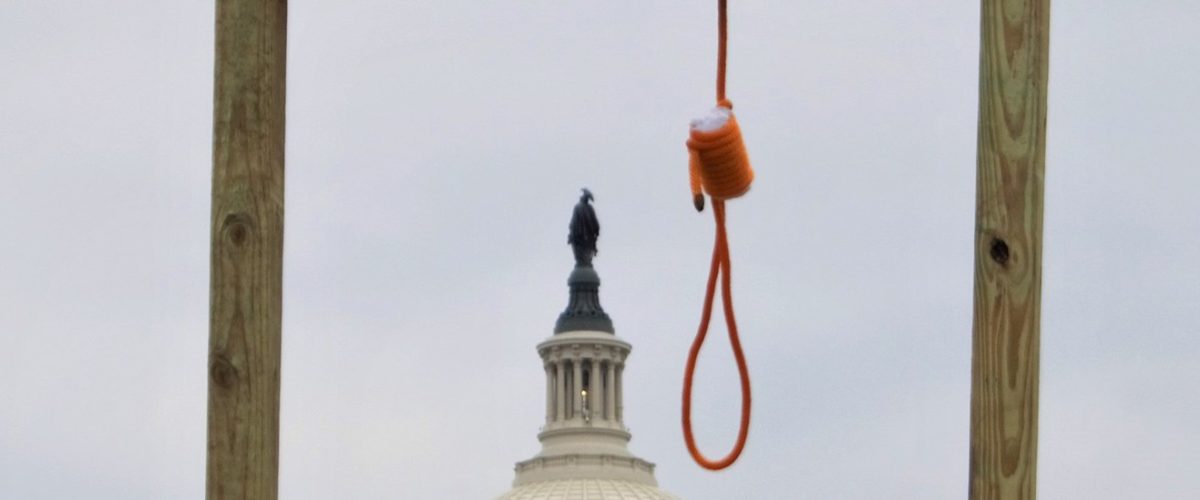Americans seeking justice for the high-level orchestrators of the Jan. 6, 2021, assault on the United States Capitol — including former President Donald Trump — need to understand the unfolding prosecution is a long game, but still one with a pressing deadline, according to panelists in a Brookings Institution seminar held on the one-year anniversary of the event.
“This is something to be thought about as a very long game and a very long judicial game,” said Katie Benner, who covers the U.S. Justice Department for the The New York Times. She was among the panelists for the Jan. 6 seminar, “The January 6 Insurrection: One Year Later.”

Katie Benner
She and other panelists said federal and congressional investigators are continuing to prosecute cases against individual rioters while painstakingly gathering evidence to identify and charge the masterminds and collaborators of the mass assault.
Benner said federal prosecutors and members of the House select committee investigating Jan. 6 must be extremely thorough in building cases that allege any sort of conspiracy, whether against white supremacist groups like the Proud Boys and Oath Keepers or Trump and members of his inner circle.
“You do not want to bring a case against somebody like Trump on any one of these charges if you think there is any possible way for it to be defeated,” she said. “And you know there is no possible way that a case against a former president, especially one as serious as this, is not going to the Supreme Court — particularly this Supreme Court as it exists now with the majority that exists and also the judicial temperament of the justices.”
What’s happening behind the scenes
Benner was joined on the panel by Seamus Hughes, deputy director for the program on extremism at George Washington University, and by Quinta Jerecic, Roger Parloff and Benjamin Wittes, all journalists focusing on the Jan. 6 insurrection for the blogsite Lawfare.
Their discussion ranged from the current state of prosecutions of misdemeanor and assault cases and the possible timetable for bringing charges against higher level participants in the insurrection to the potential impact of the 2022 and 2024 election cycles.

Seamus Hughes
Hughes noted that the need to be thorough and the dearth of available FBI agents and U.S. attorneys has impeded the speed of the Jan. 6 prosecutions. While many agents have been brought in from other cases and regions, it still isn’t enough.
“They’ve been moving agents off of ISIS and white-collar crime,” he said of the Justice Department. “It’s the largest investigation in its history.”
The COVID-19 pandemic also has hampered the pace of proceedings against the nearly 730 defendants arrested or indicted so far for their roles in the Capitol attack, which was designed to keep Congress from counting electoral votes to formalize the presidential election of Joe Biden. More than 140 police officers were injured, some seriously, and seven known deaths were related to that day’s events.
About 80% of those charged for their actions that day were identified using suspects’ social media posts from the attack, while data from cell phone towers and 300,000 tips from other citizens helped place other insurrectionists at the scene, Hughes said.
Averaging two cases a day
While progress on the case has been sluggish, it is progressing, he added. “The pace has been averaging two cases a day since Jan. 6. They’re clearing the decks, getting rid of the low-level misdemeanor cases to get to the bigger cases. We’ll get there. We’re just not there yet.”

Roger Parloff
But Parloff noted that some progress has been made in going after some of those who helped orchestrate the attack: To date, 35 of the 40 individuals charged with conspiracy are members of the Proud Boys and the Oath Keepers, white supremacist groups whose members were seen leading the charge into the Capitol building or directing others to do so.
He conceded the number doesn’t sound impressive. “There are only 40 where the government felt it could prove beyond a reasonable doubt that these people coordinated with others and had advance planning to commit crimes on that day.”
But those cases may be laying the groundwork for the prosecutions of others who had major roles planning the Jan. 6 insurrection, he explained.
“It’s these cases that might hold out the most prospect of leading to evidence that would bridge what I would call the ‘air gap’ between the pawns — the people that have been arrested, that entered the building — and the people who weren’t on the ground but set the stage for this whole event and the people who, in lay terms, incited it.”
Trump’s role
Still, Parloff added that he’s feeling “a little antsy” that the House select committee investigating the Capitol attack has yet to act on Trump’s own role in the assault.
“The evidence is already pretty suspicious about the number of people begging him to intervene and his not doing it,” Parloff said. “At some point that becomes a crime. He’s seeing this attack on democracy going on, and for hours people are begging him to intervene. He’s the president. These are his people, and he won’t call them off. And is that corruptly impeding a congressional proceeding? Or is that aiding and abetting the obstruction of a proceeding? I think it is. I think it’s enough evidence to begin looking.”

Quinta Jurecic
Jurecic added that much of the committee’s work, including subpoenaing telecommunication and social media companies, has been conducted behind closed doors but that is expected to change with a series of televised hearings this year.
Trump recently lost a bid in the U.S. Court of Appeals for the D.C. Circuit to keep archived White House documents from the committee, which is now waiting to see if the former president appeals that decision to the Supreme Court, she said. “They are very much in the middle of what they are doing.”
Facing down the midterms
Jurecic acknowledged that the committee must take decisive action before the midterm elections.
“If the Republicans win the House in 2022, which it seems the odds are that they will, it’s almost a certainty — 99.999% — that they will shut the committee down, and that’s why the committee has a really tight deadline,” she said.
Facing down the 2024 presidential election
And at the Justice Department, the 2024 presidential election could spell trouble for its Jan. 6 criminal investigations — if Trump runs and wins, other panelists said.
“If Trump were to come back in power, I think all of the federal investigations would be imperiled,” Parloff said.

Benjamin Wittes
Wittes, who moderated the discussion, said it is likely Trump would campaign on the promise to pardon Jan. 6 offenders and, if elected, would appoint an acting attorney general who “could make some mischief” in the federal investigative process.
“And there is no impediment to the pardon power being used to nuke all of this,” he added. “The famous example of that is Jimmy Carter pardoning, en masse, all the draft resisters. And so, you could imagine a single press release from the president saying, ‘I hereby pardon everybody of all crimes associated with Jan. 6.’”
In that event, likely the biggest hope for justice will come in the “powerful wallop” of civil litigation against Jan. 6 conspirators and participants, Parloff said.
Not only can civil cases uncover criminal evidence, but they can hit defendants where it hurts, he said. “You can inflict pain on the people who did this through the pocketbook, and skilled lawyers will go after them and bankrupt them. It’s a powerful tool.”
Related articles:
Facing white Christianity’s role in the Jan. 6 insurrection | Opinion by Robert P. Jones
Some things are worth dividing over | Opinion by David Bumgardner
January 6 truth or consequences | Opinion by Erich Bridges
For me, January 6 began as a day of prayer and ended as a day of disbelief | Opinion by Julie Pennington-Russell
The Capitol insurrection, the Lost Cause and the Confederate flag | Opinion by Joel Bowman Jr.


